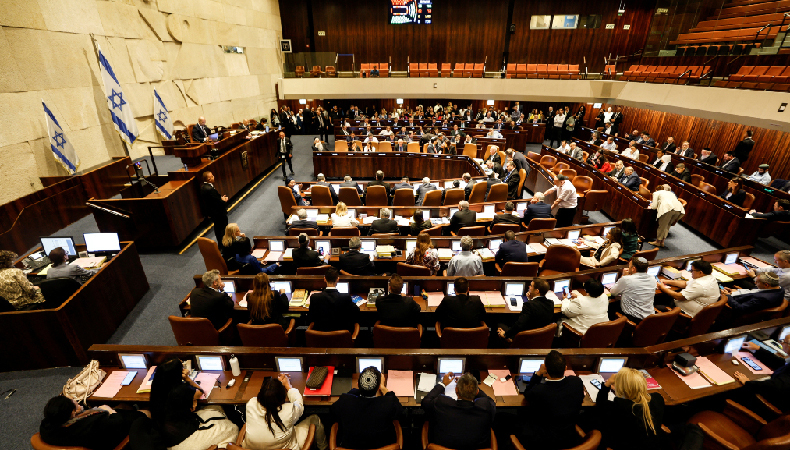Israel: High Court of Justice Axes Netanyahu’s Judicial Overhaul Law

The High Court of Justice has annulled a judicial amendment passed by Prime Minister Benjamin Netanyahu in July. There was a 8-7 split among the 15-justice panel, with eight in favor and seven against, in axing the Law to Cancel the Reasonableness Standard.
The court’s verdict comes at a time when Israel is at war against the Hamas in Gaza. Before the October 7 attack, Israel had been gripped with protests – described as Israel’s worst domestic political crisis in years. Hundreds of thousands of people had taken part in weekly demonstrations across Israel to raise their voices against the government’s judicial overhaul campaign.
There had been calls for Netanyahu to step down and professionals, including military reservists, threatening to refuse to report for service.
Judicial Overhaul Makes Courts Powerless
The protesters voiced concerns about Israel’s democracy and the future. The controversial law removed the power of the Supreme Court and lower courts to cancel government decisions deemed extremely unreasonable. It weakens the judiciary.
Moreover, critics said the reforms will shield Netanyahu, who was facing trial for alleged corruption, and help the government pass laws without any brakes. But the government defended the judicial overhaul saying the judiciary interferes too much with legislation, is biased in support of liberal issues, and is undemocratic in the way judges are selected.
There has been deep debate about Israel’s governing system and the balance of power between its branches of government. Attorney General Gali Baharav-Miara said the law removed crucial guardrails protecting Israeli democracy and boosted the government’s power at the expense of the judiciary to such an extent that it undermined Israel as a democracy.
Keep Reading
Israel Stops Visas to UN Employees, Covering Up For Hamas
IRGC Vows Revenge for Commander Killed in Israeli Airstrike in Syria
Judicial Overhaul Law Deviation from Constitution
Former Chief Justice Esther Hayut, who retired a month after the September hearing, said the law represents a deviation from the outline constitution and therefore should have been passed with broad agreement, and not with an insubstantial coalition majority.
Justice Ofer Groskopf said the exemption of the government and government ministries from the reasonableness standard applies to those who stand at the top of the pyramid. “But the demand to have the rule of law apply to them is at the heart of the imperative that no person be above the rule of law.”
However, those who were for the reasonableness law have come down hard on the court’s verdict. Simcha Rothman, head of the Knesset’s Constitution, Law and Justice Committee, described the ruling as an act of national irresponsibility which changes the fundamental principle of the State of Israel. He urged the court to come to its senses and connect with the spirit of unity and responsibility surging in all parts of the public, and to avoid creating unnecessary divisions in the nation.




